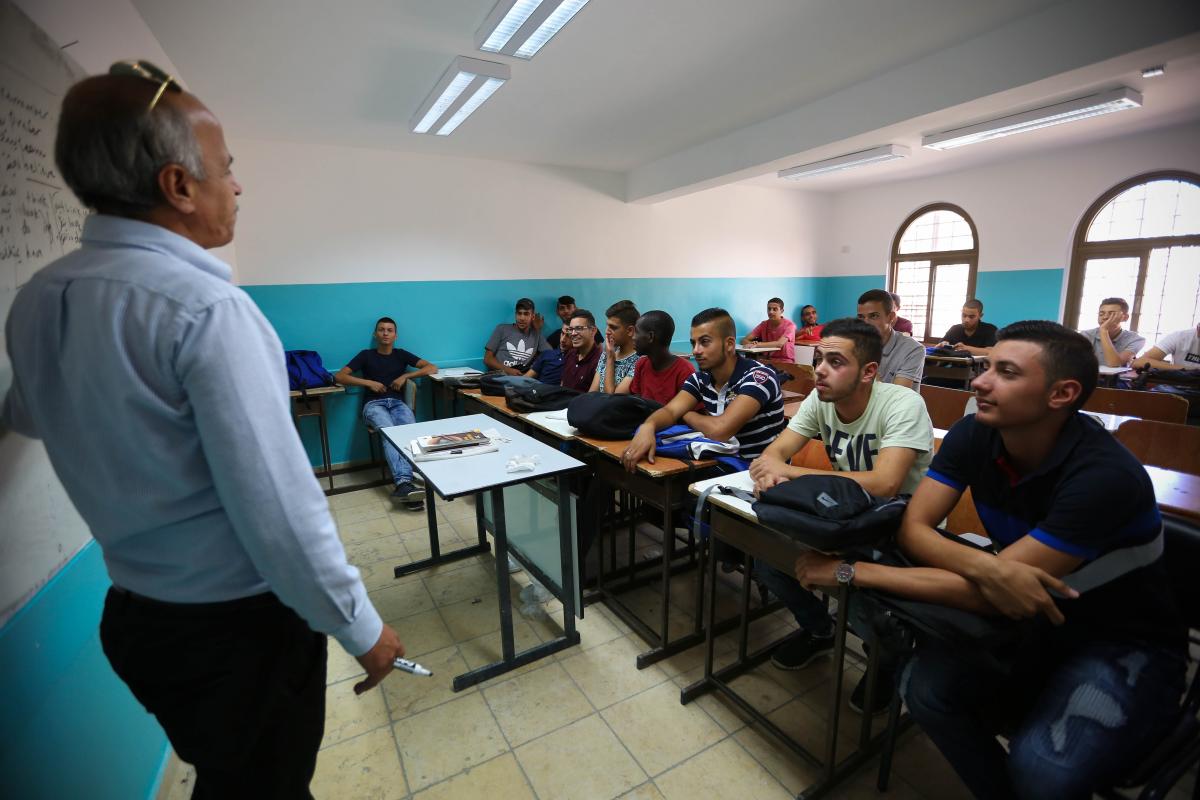Work in Progress: School Renovation in East-Jerusalem
Shortly after the 1967 war, Israel annexed East Jerusalem and included it
within the municipal boundary of Jerusalem. Although this move has not been recognized by the international community or the Palestinians, it has wide-spread
consequences for daily life in the area.
In East Jerusalem there
is an immense shortage of adequate school buildings. An estimated additional 1,000
classrooms are needed to accommodate the growing number of students. In order
to construct new buildings, the Palestinian Authority needs a building permit,
issued by the Israeli government. The process to obtain such a permit is very
lengthy; most of the time the permits are denied. That is why many schools find
refuge in rented houses or apartment buildings. But these are not purpose-built
schools, and they often do not meet basic educational and health standards. They
do not have integrated classrooms, teachers' rooms, libraries or laboratories,
nor do they have playgrounds. More importantly, many of these schools have
inadequate toilet facilities.
The Belgian
development cooperation has been active in the education sector since 2001. Within
the school construction programme, 1.3 million euro was set aside specifically
for the renovation of school buildings in East Jerusalem.
In order to identify the
needs and to prioritize interventions, the programme conducted the so-called Equivalent
Student Sufferings (ESS) Survey through local consultants. This survey rates
the school according to different indicators, such as the suitability of
classrooms and labs, hygiene and sanitation, accessibility, safety and
security. In total 120 school were visited and the findings provided BTC and
other donors with technical and financial information on how to rehabilitate
the 30 ‘most suffering’ schools. Not enough budget was available to finance all
30 of them at once, but thanks to the support of BTC nine schools have already
been renovated this summer. In a second phase nine more schools will be
renovated with an additional budget of 1 million euro.
The renovation works
that took place this summer included electric wiring, new furniture,
ventilation systems, classroom refurbishings, fire safety systems, toilets and
facilities for handicapped people. The works have taken place in 9 schools with
a total of more than 3000 students, from the age of kindergarten until 12th
grade.
Latest news from this project
No news

